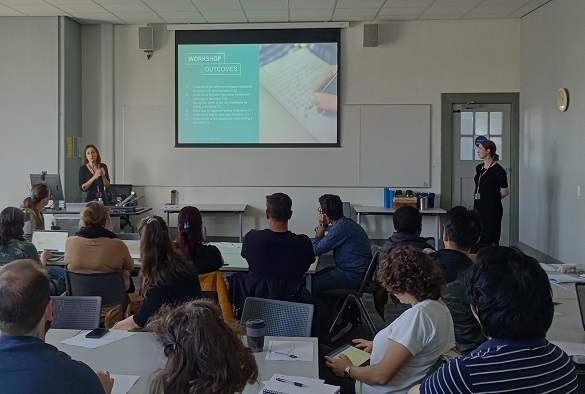Narrative CVs: telling your story
Posted on: 15 March 2024 by Hannah Dutton (Number of words: 484; Read time: 2 minutes, 26 seconds) in Blog posts
.png)
Hannah Dutton, Research Development Facilitator, in the central Research and Partnerships team at the University of Liverpool, discusses the rise of narrative CVs and their pros and cons.
Over the last couple of years, we have seen some big changes to the research funding landscape. One of these is how researchers evidence their track record as many funders, including UKRI, have shifted from the use of traditional academic CVs to narrative CVs, (also known as the Resumé for Research and Innovation). The narrative CV format aims to look beyond metric-based presentations of research careers, to value a more diverse range of professional activity. Following our early work on developing resources to help researchers approaching this new format, my colleague Lydia Nicholson and I have continued to work with the research community to understand the challenges they face as narrative CVs become more prevalent.
Given that one of the fundamental differences between these two formats is the requirement for narrative CVs to be tailored to the individual project and funding opportunity, we recognised the importance of introducing a series of events to build upon the success of our online Best Practice Guide. By working closely with researchers and Professional Services colleagues from across the institution in a series of development events, ranging from one-to-one clinics to larger workshops, we have developed a clear understanding of the challenges this new format poses.

However, in considering how we support researchers to overcome some of these challenges, I’ve had the opportunity to reflect on some of the benefits of this more holistic approach of presenting research careers. Essentially, narrative CVs are asking for more information, not only a greater range of professional activity, but also more detail about your expertise and experiences. But within this framework, you must be more selective; funders are asking you to tell the story of how you have come to this point, submitting this research proposal for this opportunity. We have found that this has polarised both opinion and experience. Depending on where you are in your career or the size of your research team, you may feel you don’t have enough to say or that you are too restricted by the word count. Some colleagues feel that shifting the emphasis away from outputs and grants presents an incomplete snapshot of a career, while others celebrate the opportunity to have their diverse activities not only recognised but rewarded.
While the debates on narrative CVs continue, I have enjoyed the challenge of creating resources to support researchers through this change, as not only does it represent a positive development in how funders value research careers in the modern research environment, but it also gives researchers the opportunity to reflect upon their own careers, their own stories.
If you would like to learn more about narrative CVs, in May 2024 we will be holding a panel discussion as part of Making an Impact 2024. In this event, we will explore why and how funders are using narrative CVs with a panel of researchers who will share some invaluable insights – we hope to see you there!
'Narrative CVs: an evolving story' is taking place on 21st May, 11:30-12:30 BST in person at the University of Liverpool. Find out more and reserve your place here:
https://MAI24NarrativeCVEvolving.eventbrite.co.uk
About the author
Hannah Dutton is a Research Development Facilitator, in the central Research and Partnerships team at the University of Liverpool. Alongside her colleagues Lydia Nicholson and Brigid Bell, she develops resources and events to support research bid development across the University. Hannah has worked in universities supporting a variety of research activities and has a background in music and education.
Keywords: Confidence, Community, Personal effectiveness, Researchers, Writing, Making an Impact.